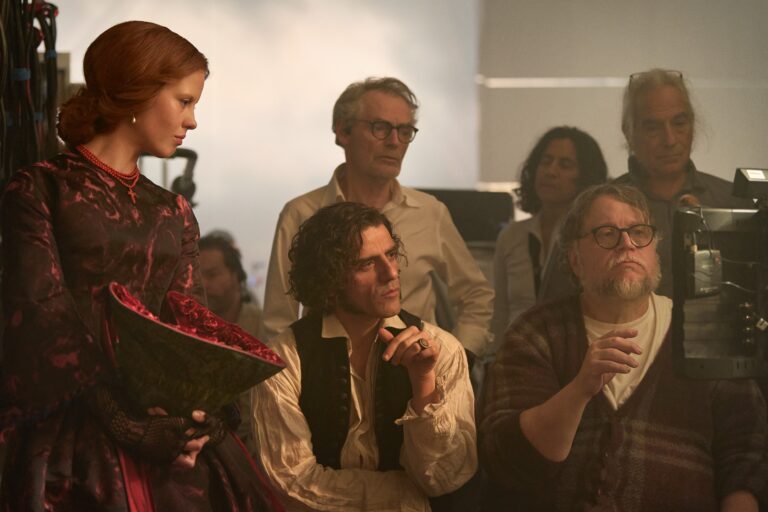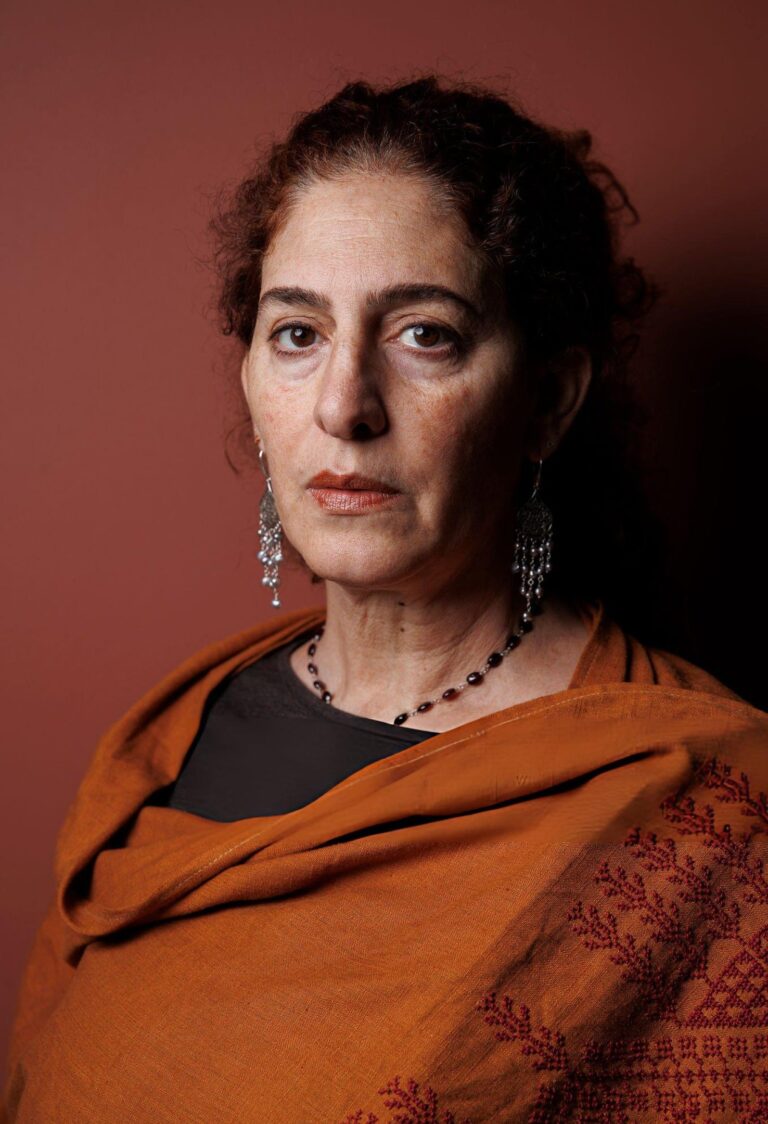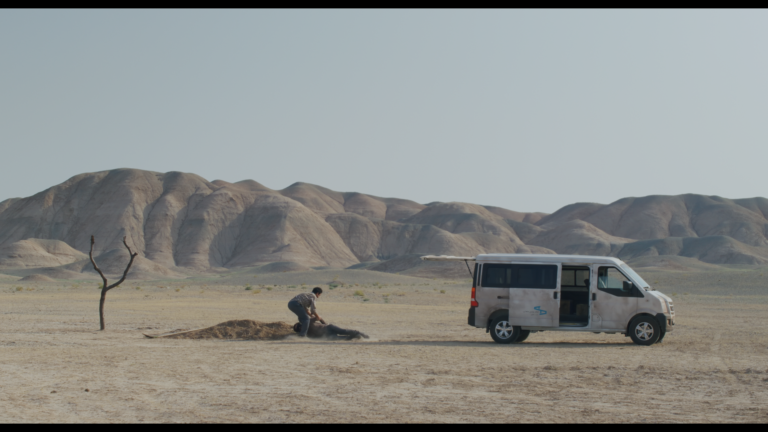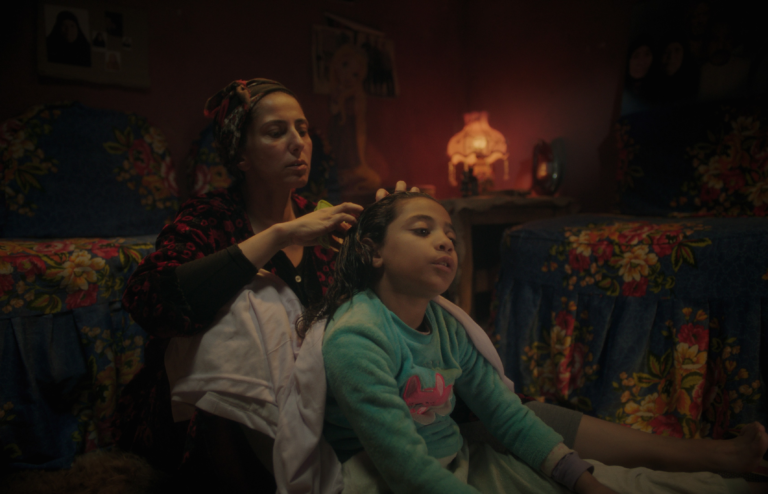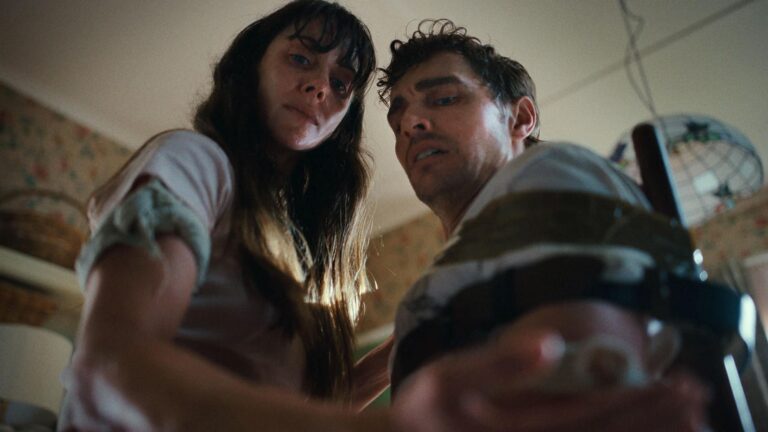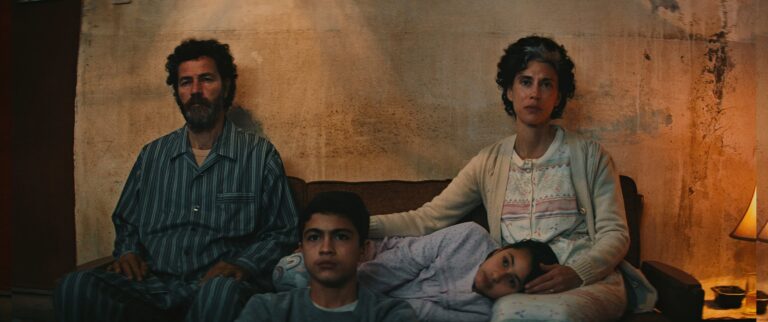Between Languages, Between Worlds: Yasmine Hamdan Redefines Arab Music
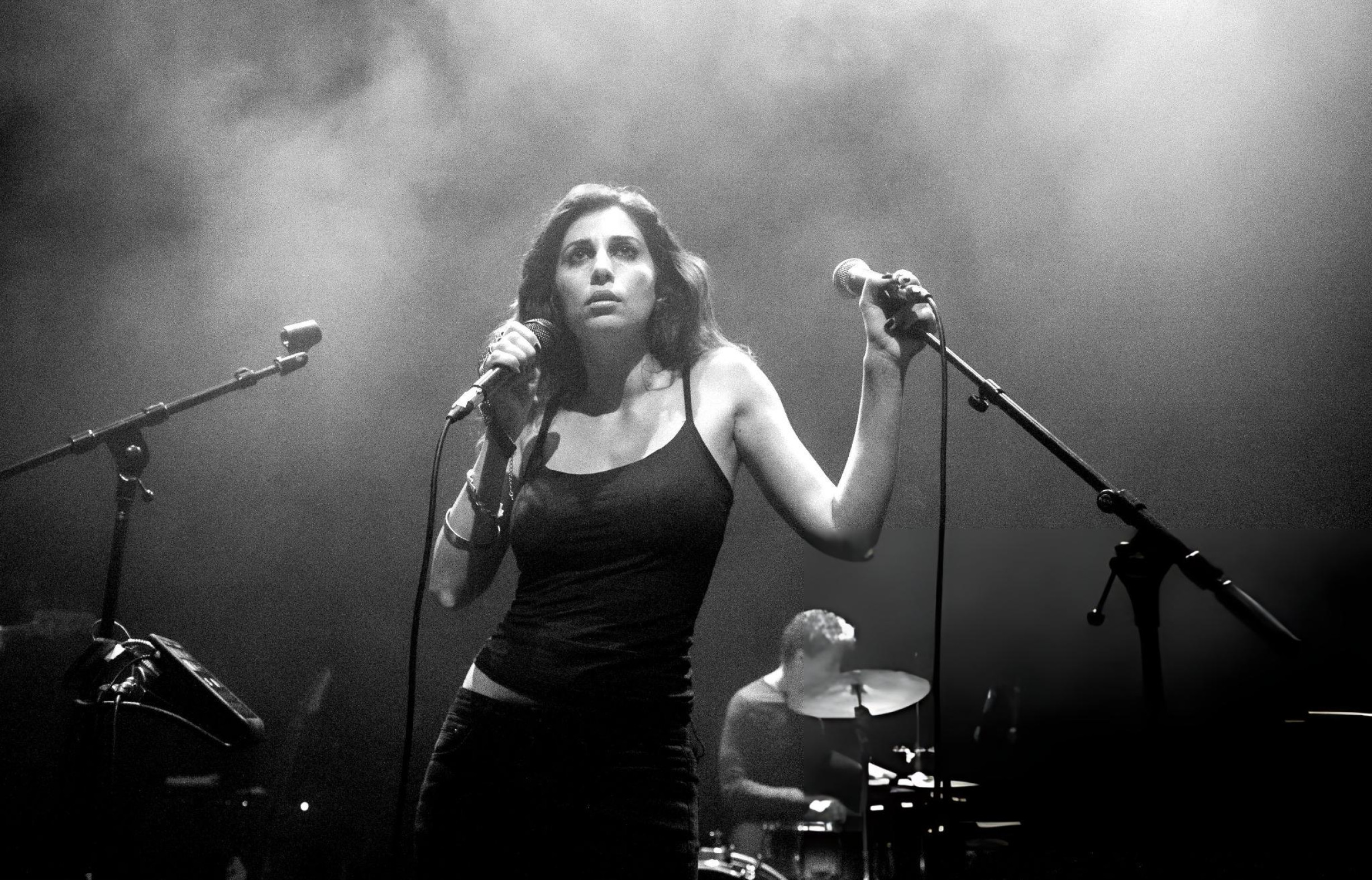
By
In an exclusive conversation with Lebanese singer and songwriter Yasmine Hamdan, we kick off our new series exploring the intersection of cinema and music. Yasmine opens up about the making of her new album I Remember I Forget, her first in several years, and reflects on rediscovering the essence of why she creates music. She discusses how the world’s instability and chaos shape her art, what truly defines an artist, and how humor, poetry, and playfulness remain powerful tools to endure and transcend the times we live in.
Yasmine: So, what are you — an Arab magazine?
Nour: No, it’s an online international magazine. We’re basically a group of people around the world doing everything media-related. We do interviews for celebrities, for films and movies, and we’re just starting this new series for musicians as well. And we’re kicking it off with you. Okay. Thank you so much for taking the time today.
Yasmine: Thank you for having me.
Nour: I’m so excited. Okay, this shouldn’t take much of your time because I understand you have another interview in a bit, right?
Yasmine: Yeah, I have a promo, and I feel a bit sick, but it’s all good.
Nour: Okay then. Let’s get started. Since you just released a new album, let’s talk a little bit about that. It’s been eight years since your last album. Is that right?
Yasmine: Uh, maybe. 2017, you know? You know when you release an album, you tour for two or three years — if the album does well. So I didn’t, I mean, I did stop for at least five years. So this is where I put the mark. Yeah, five years.
Nour: Okay, tell me more about I Remember, I Forget. What was the inspiration behind it? How did your process change compared to your earlier albums?
Yasmine: It’s a very big question. Have you heard the record?
Nour: Yes, of course I have. There’s a theme of nostalgia — a very prominent theme — and I feel like there are a lot of memories there.
Yasmine: Okay… I don’t know where to start, honestly. Is it nostalgia? I don’t know. But in all cases, it was my way to reflect on some things, my way also to transform some experiences that were a bit difficult.
And I wanted, for this record, to reconnect with the essential essence of why I am doing music. When I stopped for all these years, I felt like I needed a break — from the music industry, from being out there, from being involved. I needed to reflect. I needed to reconnect. I needed to rewire somehow — my connection to things.
And when I stopped, I wasn’t sure how or when I would go back to doing music, because it had become a bit of a burden — to always interact with all of this. You know, as an artist, you’re somehow asked to talk all the time about yourself, about your music, to feed your social media, to promote yourself, to be a model… And in all cases, I wasn’t sure that I started doing music for that.
So I decided to stop a little bit. And then you had all these crises — you know, you had the Lebanese collapse before COVID, then COVID, then the Beirut port explosion — and I wasn’t able to work because I was processing all these things for a while. Then I found myself in nature, with the desire to write music again, to start something new. And that’s how I started working on this record.
I’m not sure it’s nostalgic — maybe it’s just linked with the past for sure — but it’s also very strongly linked to the present. I wanted that double connection.
Nour: Since we’re speaking about that, I’m curious — given everything that’s been happening in the world, the instability and the violence — what’s your advice to creatives on how to channel this ugliness into something beautiful? How do you personally transform negative experiences and create something from your heart?
Yasmine: I’m kind of against formulas — there’s no recipe. But I think that, in the moments where it’s most difficult, what’s helped me is when I was able to gather my energy — to realign myself, to take small steps, little actions.
The world is difficult. Life is difficult. Everybody suffers in one way or another — that’s a reality. But we also have something unbelievably resourceful — joy. Joy is your force. Playfulness is a form of joy. Humor too. With humor, somehow, you can bypass or escape situations, open up, breathe, transcend something. Humor, poetry — these are all resources we can tap into.
It’s very challenging today. With social media, with wars in our region, with instability, with power being gathered by monsters… We suddenly find ourselves in a reality that feels very dystopian. Even when we think we’ve reached the maximum — there’s always more. But I don’t know. I think we just have to continue.
Nour: It’s interesting that you said humor. I feel like Arab people are the funniest people on the planet because of how much they go through. It’s darkly proportionate, you know? Especially Egyptians.
Yasmine: Egyptians! And Lebanese people. When I was in Egypt, I was like — no, this isn’t real, these people are insane. They have all the punchlines!
Nour: Yeah, yeah.
Yasmine: I feel like it depends on where you are — humor is different. Egyptians have that street comedy — it’s alive. Lebanon also has humor but in a different way — more conceptual, more sarcastic, more wordplay. Syrians too, very funny. I feel like when a country’s bigger..
Nour: … There’s more to make fun of.
Nour: So I believe you worked again with producer Mark Collin on this album?
Yasmine: Yes, he produced it with me — and he’s a friend. His studio isn’t far, so it was convenient. I really love working with him because he knows how I work. He knows I’m the conductor. He’s also so inspired, so positive, so efficient. I’m very obsessive, so we kind of balance each other.
Nour: You also experimented with a 1960s synthesizer. Reading about it was exhausting — I can’t imagine actually working with it!
Yasmine: Why? It’s very interesting! He’s a collector — he has all these vintage synthesizers. A lot of people use them as plugins in digital music programs, but he has the physical machines. We didn’t even use 1% of them. He knows all his sounds and where to find what.
We recorded many musicians in the studio, but also remotely — I’d send a track to a friend, they’d record their part, send it back. We were flexible. I did most of the edits and final song forms at home.
Nour: Speaking of collaborations, if you could collaborate with one artist, dead or alive, who would it be?
Yasmine: I don’t know. This is one question I can’t answer. There are too many people. And honestly, I never know what to eat for lunch, so you’re asking me something so big — it stresses me.
Nour: (laughs) Fair enough. You’ve had a relationship with cinema — from acting in Only Lovers Left Alive to working on music supervision for films, and directing your own video for I Remember, I Forget. How do music and cinema intersect for you creatively?
Yasmine: Of course they intersect. When you write a song, you create a visual space — colors, sensations. I like working in cinema because I’m interested in being less central to a project. I like collaborating — being part of something, not always the center.
I’ve worked with theater and dance too. It’s not my priority, but I’d love to do more, to have time for it. And since I can do everything myself at home, it’s easier now.
Nour: Working with films and theater often involves tight deadlines and context. Do you prefer those external constraints, or the freedom of creating without limits?
Yasmine: Constraints are important. For this record, though, I decided not to put any — no deadlines, no guidelines. I needed time. Maybe for the next record, I’ll want to finish it in three days. I just follow what feels right.
Nour: I heard some research recently that inspired this question — how different languages activate different parts of your brain and bring out different sides of yourself. You experiment with dialects and styles in your music. Do you just enjoy experimenting, or do different languages bring out different versions of you?
Yasmine: Both. If I want to communicate a certain emotion, the dialect matters. For example, if I use Egyptian, it’s because that emotion vibrates with that culture — even though I’m not Egyptian, I grew up with Egyptian films and music.
Sometimes I choose a dialect because of its musicality. Once, I wanted to write a song that was shy, cute, soft — and I felt Bedouin dialect worked best. The sound of it, the way words are said, carries that emotion.
And yes, sometimes I start songs because I fall in love with a single word. Like, recently I was in Germany, and the word in German — every time I hear it, my nervous system calms down. So, it depends.
Nour: That’s fascinating.
Yasmine: Yeah, apparently science says all this stuff about the brain and language, but I don’t know if it’s always applicable. We have too much information about ourselves now.
Nour: Sometimes science is right though. For instance, I grew up bilingual, and I feel like my personality in English isn’t the same as my personality in Arabic.
Yasmine: For sure. Even my voice changes — in English it’s different than in French or Arabic. In French, I have a higher pitch. In Arabic, lower. It’s how the language circulates in your body — it vibrates differently. But I can ask you this: In which language do you dream?
Nour: (laughs) Oh, my native tongue… I don’t know.
Yasmine: Once I tried to notice — I dreamed in French, then English, then Arabic. So I stopped trying. The mind just plays games. You just sleep, you know?
Nour: That’s true. We shouldn’t try to limit ourselves with numbers or statistics — like personality tests or astrology. Astrology feels like another box.
Yasmine: No, no — astrology is different. It’s a science — about stars, alignment, movement, the moon. I don’t know much, but it’s different. I just think we know too much now — we’re saturated.
Nour: For sure. So, Yasmine, if you could go back to the beginning of your career, what would you do more of or less of?
Yasmine: No, I don’t want to answer that kind of question. I don’t want to do more, or less. I don’t regret anything.
Nour: Makes sense. Which memories were the hardest to revisit while making I Remember, I Forget?
Yasmine: I don’t look at it that way. It’s just a creative process — with ups and downs. It’s laborious, like giving birth. You have insecurities, then fun, then magic, then blocks, then self-hate, then pride. It’s a bit schizophrenic, honestly.
But I don’t remember specific memories — what I keep is the record itself, and the gratitude I feel. I’m grateful to the musicians, to everyone who participated with their talent and soul. And I’m grateful for the feedback. That’s what I keep.
Nour: Last question — now that the album’s out, is there something you hope listeners take away from it, especially audiences in Lebanon and the Arab world?
Yasmine: I try to give something solid in the music, but also leave space for people to feel what they want. I want them to interpret it freely.
I remember performing in Egypt once — I was amazed by the audience. Same in Lebanon. It feels different. I usually perform more in Europe or the States, where most of the audience doesn’t understand the lyrics, but they still feel it. That’s the beauty of music — it’s universal.
But performing in Arabic countries, when it’s possible, makes me really happy. It’s moving — the lyrics feel organic. I just hope I can perform more across the Arab world, in front of audiences who’ve been following me from the beginning. This music is also about them.
Nour: That’s amazing. Thank you so much for your time today. I had so much fun talking to you. And when you perform here, I’ll be the first one to come!
Yasmine: Deal! Thank you so much. Bye!


